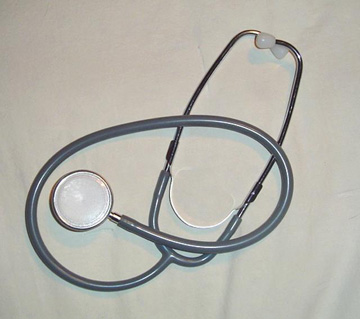 by Preston MacDougall January 15, 2007
For many people, New Year's resolutions are an annual exercise in wishful thinking, which got me thinking about leaders who have misled entire communities down a garden path with a fruitless end.
Of course, I'm talking about several famous instances of "Pathological science: scientific studies based on non-existent phenomena." What did you think I was talking about? This pseudo-medical title was the billing of a lecture given to an audience of researchers and managers at the General Electric Research Laboratory in Schenectady, New York, on December 18, 1953. The speaker was Irving Langmuir, who won the 1932 Nobel Prize in Chemistry for work done as a research scientist at GE. He was a Brooklyn native who told it like it was. In his lecture, Dr. Langmuir told of N-rays and mitogenetic rays, as well as the Davis-Barnes and the Allison effects. Each of these "discoveries" was published in a prestigious journal, such as Nature, and was big news at the time. You have probably never heard of them because they are non-existent phenomena. In every case, reputable scientists believed they were measuring something that was not there. Langmuir was also involved in official investigations into ESP research and UFOs, and he tells these stories as a Brooklynite would. They were much the same, except that prestigious journals were not involved, and if there were any scientific reputations to begin with, they lost repute. All cases have some symptoms in common: the theories that explain the effects are fantastic, the effects themselves are very close to the limits of detectability, and various ad hoc excuses are invented to discard contrary data. When explaining to my students that science is a very human process, prone to all sorts of errors that they need to be alert to, I have often quoted Langmuir's diagnosis: "These are cases where there is no dishonesty involved but where people are tricked into false results by lack of understanding about what human beings can do to themselves in the way of being led astray by subjective effects, wishful thinking or threshold interactions. These are examples of pathological science. These are things that have attracted a great deal of attention. Usually hundreds of papers have been published upon them. Sometimes they have lasted for fifteen or twenty years and then they gradually die away." I would add that, in the meantime, many scientific careers, that would have otherwise been productive, had been wasted. No lives were lost though. That cannot be said for all instances of wishful thinking, however. The Rogers Commission was charged with investigating the 1986 Space Shuttle Challenger disaster. In addition to catastrophic technical failures, their report cited pre-launch "pressures on the system". These were largely managerial issues, such as curtailed procurement of spare parts and manpower shortages during unexpected mission changes. And, "an accelerated launch schedule", which some felt served political purposes. The panel's report also included an addendum from its iconoclastic member, Richard Feynman, who was a Nobel Prize-winning physicist from Far Rockaway, New York, across Jamaica Bay from Brooklyn. He also told it like it was. Sure, he demonstrated on live TV how the booster rocket O-rings failed in the freezing cold temperatures during the tragic launch, but he put the blame squarely on human factors when he said that "The guys who know something about what the world is really like are at the lowest levels of these organizations and the ones that know how to influence people by telling how the world would be nice, they are at the top. And there seems to be a certain amount of lack of communication." Thankfully, science has not had any losing streaks comparable to those seen at Shea Stadium. I wouldn't have tried to launch my own career in science if I didn't believe in its power to inspire wonder, solve problems, improve, and even save lives. Many people experience this power through medical advances. Scientific advances depend on bold imaginations, careful experimentation, and effective communication. A premier medium for the latter, the British Medical Journal is beginning its 167th year of publication with an international poll of the top medical milestones since the journal began in 1840. Medical experts from around the globe have narrowed the list of nominees down to a shortlist of the 15 most important medical advances. You are invited to read the summaries of these top contenders, and vote for your choice (go to www.bmj.com). The winner will be announced on January 18. I have already voted for Evidence-based Medicine, which advocates a hard-nosed look at available evidence - as opposed to personal experience or conventional wisdom - when deciding on patient care. This concept was pioneered at McMaster University, my alma mater, so I am admittedly biased. I don't expect my commentary
to influence your vote, however. That would be wishful thinking.
Publish A Letter on SitNews Read Letters/Opinions Submit A Letter to the Editor
|
||
